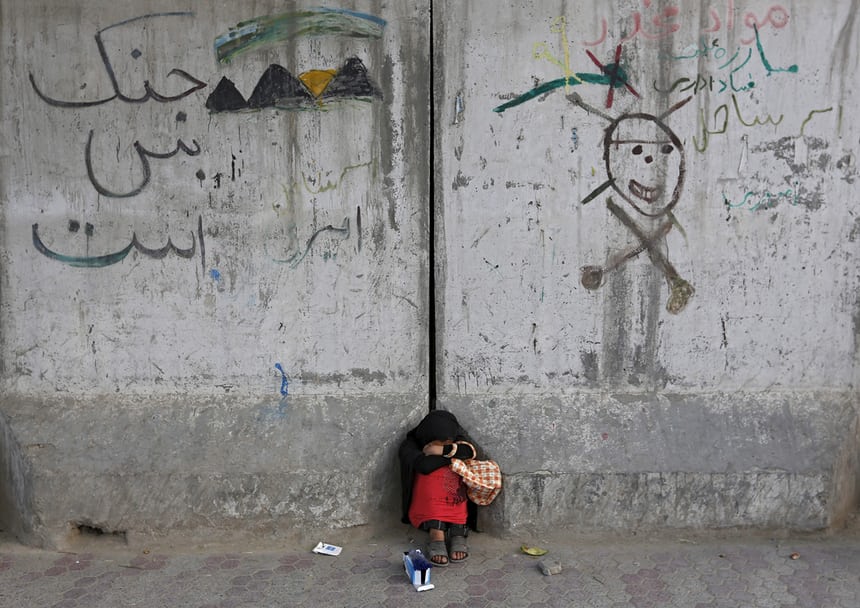The Guardian -For 14-year-old Ahmed*, life as a kid on the streets of the Afghan capital has become synonymous with abuse.
His voice calm and unwavering, Ahmed reels off stories of the assaults he has suffered over the years. “One day, a man asked me to buy him a pack of chewing gum. I went out and bought it, and took it back to his house,” Ahmed tells me in a dimly-lit apartment he shares with his family. “He then forced me inside his home and raped me.” It happened two years ago, but his stories go back to when he was five years old.
After the first time he was sexually assaulted, Ahmed tried to be more careful, avoiding quiet areas and trying not to travel anywhere alone. But one day, when his brothers were not around to protect him, three teenage boys followed him to a Kabul backstreet, and took turns raping him. This became a regular occurrence but he felt he couldn’t tell anyone – especially not his family. Ahmed feared his family would be ashamed of him if they knew; he didn’t want to be the one who let them down.
Kabul is heaving with street children like Ahmed, impoverished boys and girls who are sent out by their families to work or beg. They snake through the city’s congested traffic, trying to clean car windscreens or peddle trinkets. They are are often subject to abuse by male drivers, especially taxi drivers.
After nearly 40 years of conflict, poverty and violence is rife in Afghanistan. Since Nato-led troops ended their conflict mission four years ago, the poorly equipped Afghan forces have struggled with an emboldened Taliban and the new task of trying to contain an Islamic State insurgency.
In this environment, education is seen as secondary to earning money. Many children skip school so they can work to support their families. In central Kabul, children as young as three are dotted about the chaotic urban landscape, dwarfed by the enormous mounds of fruit for sale on their wooden crates, or polishing men’s shoes.
Street children are forced to brave violent sexual predators in the Afghan capital as they struggle to earn money. Lahla, 10, was forced to work on the streets after her father was killed three years ago. Wearing a long dress and plastic purple sandals that had seen better days, Lahla’s skin is burned by the sun, evidence of her long days spent on the streets.
Her father, a farmer, was killed on his way home when Taliban insurgents and Afghan government troops were locked in a bloody battle. Her meagre earnings from begging support her mother, sister and brother-in-law.
On a recent day in Kabul, Lahla sits near busy restaurants hoping passersby will give her a five or 10 Afghani note, worth about the same value in British pence. She watches as scores of schoolgirls pass by in their black and white uniforms. Lahla has never been to school.
Not long ago, a man promised to give her money if she led him behind the restaurant where she sat. Lahla agreed. There, he began kissing and groping her. She was powerless to stop it. “I was shocked, and my heart was beating so fast. I couldn’t even scream, my voice was lost because I was scared if someone saw that this guy, they would blame me,” Lalah says. “Afterwards, I felt so sick – I even got sick – but I couldn’t tell my mother why.”
Approximately 2 million children work on the streets across the country, with 1.2 million of them doing hard labour, according to the Ministry of Labour, Social Affairs, the Martyrs and Disabled. While the majority work in Kabul, street children also work in large cities across the country, including Herat in the west and Balkh in the north.
There are no official statistics for how many Afghan street children are abused, but anecdotal evidence and social activists suggest it is rampant.
Zabi, another 14-year-old boy who has spent half his life on the streets selling plastic bags, says he cannot think of a single street child who has not been assaulted. He says taxi drivers, shopkeepers and even male university students are perpetrators. Zabi’s eyes filled with tears as he recalled how, four years ago, a group of older boys pushed him in the Kabul river and took turns raping him. Zabi went straight to the police, and the boys were arrested. When Zabi’s father discovered what had happened, he blamed Zabi for shaming the family.


